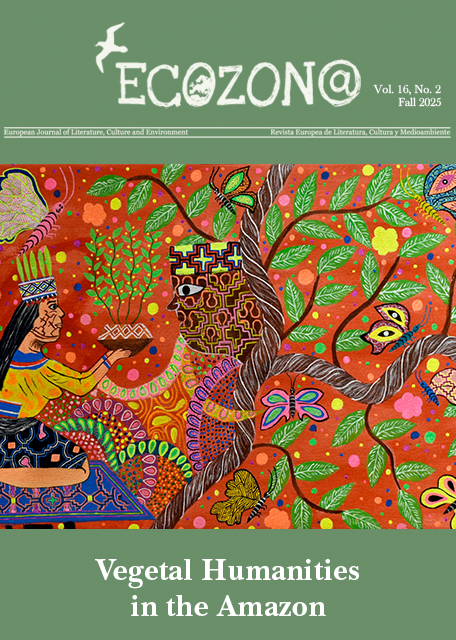<b>“Matrices de aprendizaje” emancipadoras. OVNI (Observatorio de Video no Identificado) y el videoactivismo</b> // Alienating and Emancipatory “Models of Learning”: An Approach to OVNI (Observatory of Non Identified Video) and its Video-activism
DOI:
https://doi.org/10.37536/ECOZONA.2017.8.1.1057Schlagworte:
Matrices de aprendizaje, (Des)colonización del saber, cultura videoactivista, OVNI (Observatorio de video no identificado) // Models of learning, (De)colonization of knowledge, Videoactivist Culture, OVNI (Observatory of Non-Identified Video)Abstract
Resumen
Partiendo de la premisa de que no estamos solo ante una crisis económica sino ante una crisis planetaria y de civilización marcada por la desaparición de los derechos humanos y los derechos de la naturaleza, este ensayo revisa el concepto de colonialidad del saber o “colonialismo interno” (Rivera Cusicanqui) junto al de matriz del aprendizaje capitalista como estructura instituyente tanto de la psique colonizadora como de la subalterna y de las relaciones entre ambas y el mundo. En este contexto, propongo pensar el videoactivismo de OVNI [Observatorio de Video no identificado] como posible herramienta cultural emancipadora y de trabajo en un proceso de cambio político.
Abstract
Starting from the premise that we are not dealing with only an economic crisis but also a planetary crisis marked by the disappearance of human and environmental rights, this essay looks at the concepts of colonization of knowledge or “internal colonialization” (Rivera Cusicanqui) alongside with the neo-liberal capitalist model of learning as an institutive structure of the colonizing and the colonized psyche as well as the social relationship between the two of them and the world. In this context, I propose to think the video-activism of OVNI (Observatory of Non-Identified Video) as a possible cultural emancipatory tool and one that can be used in a process of political change.
Downloads
Downloads
Veröffentlicht
Ausgabe
Rubrik
Lizenz
Authors who publish with this journal agree to the following terms:
a) Authors retain copyright and grant the journal right of first publication with the work simultaneously licensed under a Creative Commons Attribution License that allows others to share the work with an acknowledgement of the work's authorship and initial publication in this journal (CC BY-NC for articles and CC BY-NC-ND for creative work, unless author requests otherwise.
b) Authors are able to enter into separate, additional contractual arrangements for the non-exclusive distribution of the journal's published version of the work (e.g., post it to an institutional repository or publish it in a book), with an acknowledgement of its initial publication in this journal.
c) Authors are permitted and encouraged to post their work online (e.g., in institutional repositories or on their website) prior to and during the submission process, as it can lead to productive exchanges, as well as earlier and greater citation of published work (See The Effect of Open Access).










